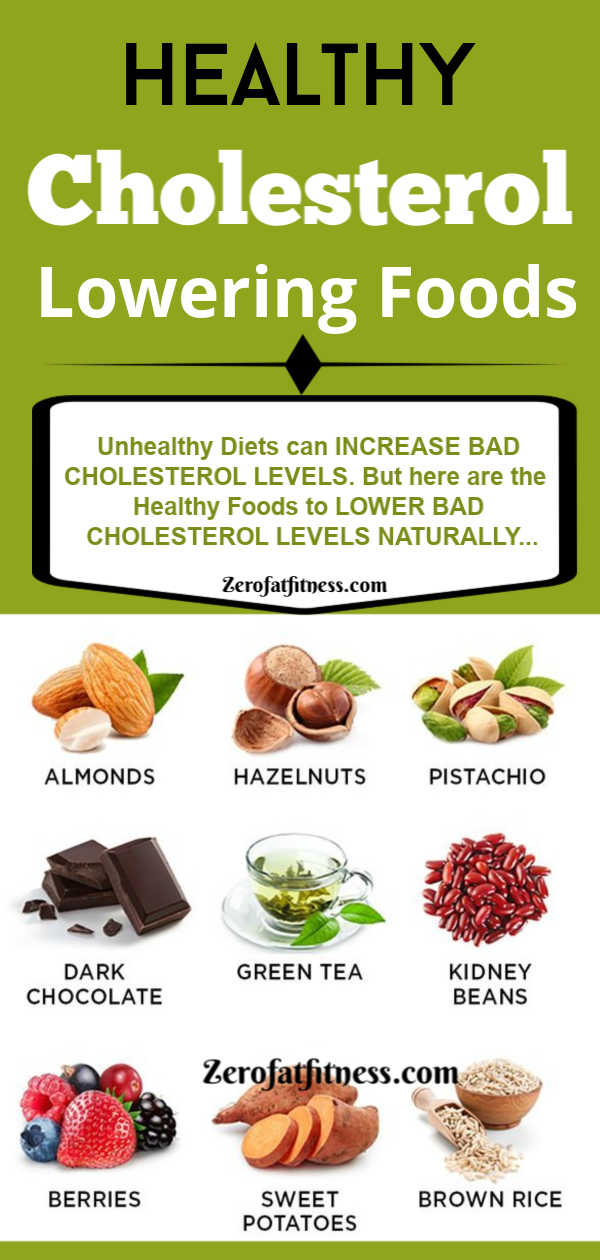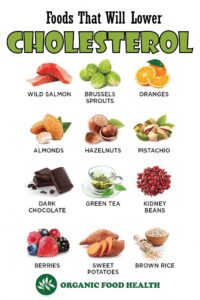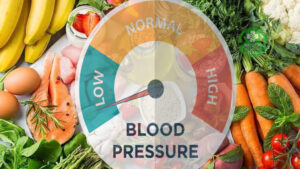Cholesterol is a waxy substance found in your blood. While it is essential for various bodily functions, high levels of bad cholesterol, also known as LDL cholesterol, can lead to serious health issues. Elevated LDL cholesterol levels are a significant risk factor for heart disease, stroke, and other cardiovascular conditions. However, the good news is that you can take steps to lower your bad cholesterol levels and improve your overall health. In this article, we will explore effective strategies, backed by research and expert advice, on how to lower your bad cholesterol and maintain a healthy heart.
The Impact of Bad Cholesterol on Your Health
Before diving into the strategies for lowering your bad cholesterol, let’s first understand the impact it can have on your health. Cholesterol is carried through your bloodstream by lipoproteins. Low-density lipoprotein (LDL) is often referred to as bad cholesterol because it can build up in your arteries, leading to plaque formation and narrowing of blood vessels.
When the arteries become narrow, it restricts blood flow to vital organs, including the heart and brain. This reduced blood flow can increase the risk of heart attacks, strokes, and other cardiovascular problems. On the other hand, high-density lipoprotein (HDL) is known as good cholesterol because it helps remove LDL cholesterol from your bloodstream, reducing the risk of plaque buildup and promoting heart health.
Understanding Cholesterol Levels
Before embarking on a journey to lower your bad cholesterol, it’s important to understand cholesterol levels and what they mean. Cholesterol levels are measured in milligrams (mg) of cholesterol per deciliter (dL) of blood. Here’s a breakdown of cholesterol levels:
- Total Cholesterol: Less than 200 mg/dL (Desirable)
- LDL Cholesterol: Less than 100 mg/dL (Optimal)
- HDL Cholesterol: 60 mg/dL and above (High)
- Triglycerides: Less than 150 mg/dL (Desirable)
It is crucial to maintain a healthy balance between LDL and HDL cholesterol levels to reduce the risk of cardiovascular diseases. Now, let’s explore some effective strategies to lower your bad cholesterol.
1. Adopt a Heart-Healthy Diet
Your diet plays a vital role in managing your cholesterol levels. Here are some dietary recommendations to lower your bad cholesterol:
- Reduce saturated fat intake: Saturated fats found in red meat, full-fat dairy products, and tropical oils can raise your LDL cholesterol levels. Limit your intake of these foods and opt for leaner protein sources and low-fat dairy products.
- Increase fiber-rich foods: Soluble fiber found in fruits, vegetables, whole grains, and legumes can help lower LDL cholesterol levels. Aim for at least 25-30 grams of fiber per day.
- Incorporate heart-healthy fats: Monounsaturated fats found in olive oil, avocados, and nuts, as well as polyunsaturated fats found in fatty fish and flaxseeds, can help improve your cholesterol profile.
- Include plant sterols: Foods fortified with plant sterols or stanols, such as certain margarines, can help reduce LDL cholesterol levels.
- Limit cholesterol intake: Reduce your consumption of cholesterol-rich foods like organ meats, shellfish, and egg yolks.
By making these dietary changes, you can significantly impact your cholesterol levels and promote heart health.
2. Maintain a Healthy Weight
Excess weight, especially around the waistline, can contribute to higher LDL cholesterol levels and increase the risk of heart disease. Losing weight through a combination of healthy eating and regular physical activity can help improve your cholesterol profile. Aim for a body mass index (BMI) within the healthy range, which is typically between 18.5 and 24.9.
3. Engage in Regular Physical Activity
Physical activity not only helps with weight management but also directly impacts your cholesterol levels. Regular exercise can increase HDL cholesterol levels and lower LDL cholesterol levels. Aim for at least 150 minutes of moderate-intensity aerobic activity or 75 minutes of vigorous activity per week. Additionally, incorporating strength training exercises can provide additional benefits for heart health.
4. Quit Smoking
Smoking has a detrimental effect on your cardiovascular health, including cholesterol levels. It lowers your HDL cholesterol and damages your blood vessels, making it easier for LDL cholesterol to build up plaque. Quitting smoking can lead to immediate improvements in your cholesterol levels and significantly reduce the risk of heart disease.
5. Limit Alcohol Consumption
While moderate alcohol consumption may have some heart health benefits, excessive alcohol intake can raise blood pressure and cholesterol levels, leading to increased cardiovascular risk. It is recommended to limit alcohol consumption to moderate levels, which means up to one drink per day for women and up to two drinks per day for men.
6. Consider Medications
In some cases, lifestyle changes alone may not be sufficient to lower your bad cholesterol levels. Your healthcare provider may recommend medications called statins, which are effective in reducing LDL cholesterol. Statins work by blocking the enzyme responsible for cholesterol production in the liver. It is important to consult with your healthcare provider to determine if medication is necessary and to monitor your cholesterol levels regularly.
7. Manage Stress Levels
Chronic stress can impact your cholesterol levels and overall cardiovascular health. Find healthy ways to manage stress, such as engaging in relaxation techniques, practicing mindfulness, or pursuing hobbies that bring you joy. Prioritizing self-care and incorporating stress-reducing activities into your routine can positively impact your cholesterol levels.
Conclusion
Lowering your bad cholesterol is crucial for maintaining a healthy heart and reducing the risk of cardiovascular diseases. By adopting a heart-healthy diet, maintaining a healthy weight, engaging in regular physical activity, quitting smoking, limiting alcohol consumption, considering medications when necessary, and managing stress levels, you can effectively lower your bad cholesterol levels and improve your overall well-being.
Frequently Asked Questions
Q1: Can I eat eggs if I have high cholesterol?
A1: While eggs do contain cholesterol, research suggests that the cholesterol in eggs has a minimal impact on blood cholesterol levels for most individuals. It is generally safe to consume eggs in moderation as part of a balanced diet.
Q2: Are there any natural supplements that can lower bad cholesterol?
A2: Some natural supplements, such as fish oil, garlic extract, and green tea extract, have shown potential in improving cholesterol levels. However, it is important to consult with your healthcare provider before starting any supplements to ensure they are safe and appropriate for you.
Q3: Can stress alone cause high cholesterol?
A3: While stress can indirectly impact cholesterol levels through unhealthy coping mechanisms like overeating or smoking, it is not the sole cause of high cholesterol. A combination of genetic factors, diet, lifestyle, and other underlying health conditions contribute to high cholesterol levels.
Q4: Can I drink coffee if I have high cholesterol?
A4: Moderate coffee consumption is generally safe for individuals with high cholesterol. However, it is important to be mindful of the additives (such as cream and sugar) that can increase calorie and saturated fat intake. Opting for black coffee or using healthier alternatives can help maintain a heart-healthy routine.
Q5: Are there any specific foods that can help raise HDL cholesterol?
A5: Foods rich in omega-3 fatty acids, such as fatty fish (salmon, mackerel, and sardines), flaxseeds, chia seeds, and walnuts, have been shown to increase HDL cholesterol levels. Additionally, regular exercise, moderate alcohol consumption, and avoiding smoking can also help raise HDL cholesterol levels.
Summary
Lowering your bad cholesterol is essential for maintaining a healthy heart and reducing the risk of cardiovascular diseases. By adopting a heart-healthy diet, maintaining a healthy weight, engaging in regular physical activity, quitting smoking, limiting alcohol consumption, considering medications when necessary, and managing stress levels, you can effectively lower your bad cholesterol levels and improve your overall well-being. Remember, it’s never too late to make positive changes to your lifestyle and prioritize your heart health.




